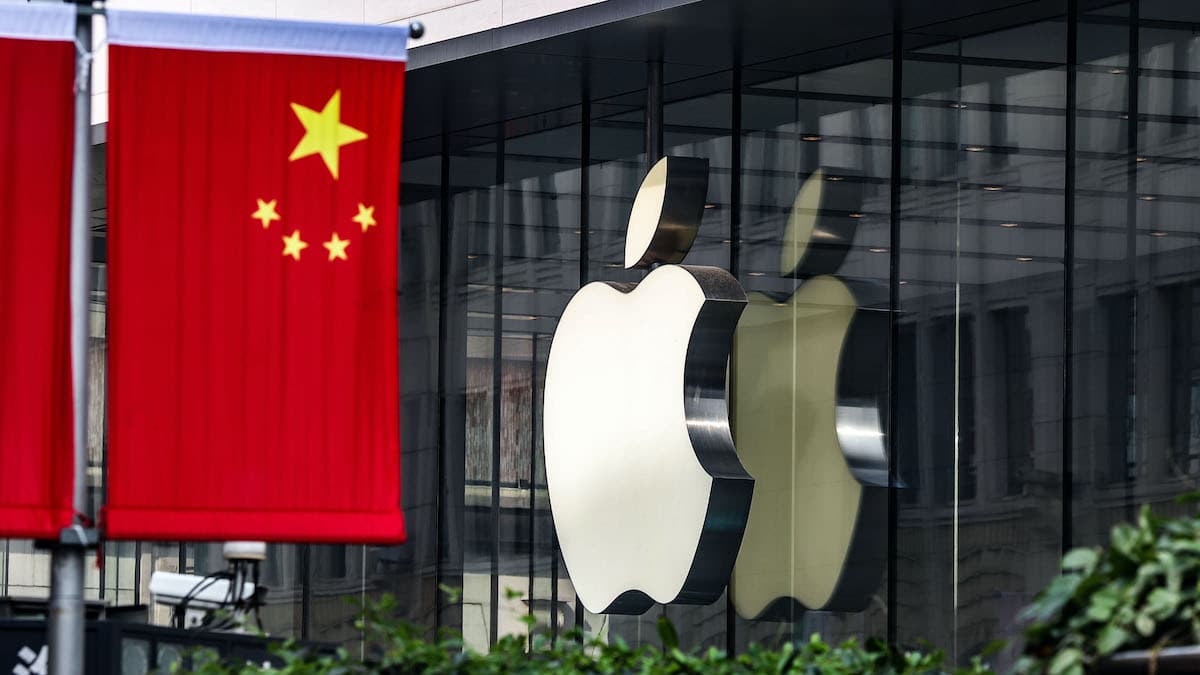
In 2018, Apple was forced, like the rest of the technology companies, to store the iCloud operations data from Chinese customers on servers located in the country, giving the key to the Chinese authorities so that they can access all the content stored by the citizens of the country, no matter how much Apple says otherwise.
This was the first step for the Chinese government to control its citizens. But not the only one, since as of November 1, a new data protection law comes into force that requires companies to store more data locally preventing them from being transferred out of the country.
This new law will force the company to store even more confidential user information such as usage statistics and iPhone communication logs and all other Apple products (data that Apple collects if the user gives their permission when they set up the iPhone for the first time).
Various analysts affirm that this information could used to track and identify political dissidents and activists in China.
This new law, which goes hand in hand with another that came into force on September 1, according to The Information, will put Apple in a bind, since according to legal experts and analysts consulted by this medium, they are a new pressure measure for the company to continue operating in the country.
This same media claims that in 2015, the Chinese authorities visited Apple's Shanghai offices requesting the company to start store information such as sales data from your retail stores in the country, although it is not clear if Apple ever met it.
Censorship on the App Store
In recent years, Apple has withdrawn a large number of applications available in the App Store, applications of all kinds but mainly those that offer information to foreign media, as is the most recent case of Yahoo Finance, as we inform you to do a few days.
However, these are not the only applications that are in the eye of the China Cyberspace Administration, since a week ago, Apple withdrew at the request of this administration, an application of the Quran, even though it is a religion officially recognized by the government.
For control access to information, for 4 years VPNs are totally forbidden, both in the App Store and outside of it. Any application or groups of applications that allow users to bypass the control of government information, have no place in the Chinese App Store.
Decentralizing production
Apple has been decentralizing the manufacture of most of its products and components from China to other countries such as Vietnam and India for more than a year, as if it knew that sooner or later, it would have to cut relations with the country, either from own motu or bound by the Chinese government.
The importance of the market for Apple
China is a critical market for Apple, and the company has made many compromises on security and privacy in the past. But if Apple complies with the new regulations, is likely to face further criticism from both US lawmakers and human rights activists.
The motivation of the Chinese Cyberspace Administration to create this new law to store more data locally, is that they are concerned that the data of Chinese citizens stored outside the country are at the disposal of the United States intelligence services.
However, user data stored within China can easily be monitored by state authorities. Come on what they don't want to share that data with the CIA.
It should be remembered that technology companies that work in Europe are also forced to store in the old continent European user data.
LinkedIn has said enough already
While Tesla has started storing its customers' data on servers in China, this new law has contributed to LinkedIn (owned by Microsoft), announcing that closes operations in the country alleging "Significantly more challenging operating environment and higher compliance requirements."
Google in 2010, was the first to quickly get tired from the Chinese government's continuous petitions for censorship and since then, it has made no move to return to the country, despite being a potential source of income for any tech company.
We already know what Apple will do
Apple is a company, not an NGO, so you are to earn money. He knew exactly what he was doing and the consequences it could have in the future when it began its expansion in the country, a country where Apple currently has a presence through 43 Apple Stores.
Will Apple protect its customers from an authoritarian regime? Will it protect its economic interests and continue to collaborate with the Chinese regime? Regrettably, we all know the answer.
Apple will hide behind that it has to comply with the local laws of the countries where it has a presence. And considering that in China, one out of every four smartphones sold is an iPhone, the idea of closing stop selling in China does not even cross their minds.
Now, it is likely that if US lawmakers and human rights organizations do enough noise, Apple can change its strategy and, for the first time, stand up to the Chinese government.
As the effective date of this new law approaches, November 1, we will get to know more information about what Apple plans to do about it.
It is likely, as has happened with other laws, that the Chinese government delay the entry into force of this new lawAlthough this is unlikely as the Cupertino-based company already has servers in the country where Apple's user data is currently stored.